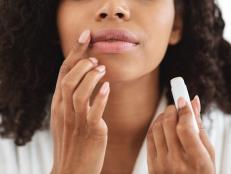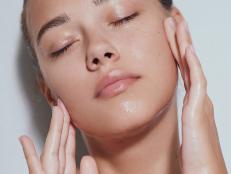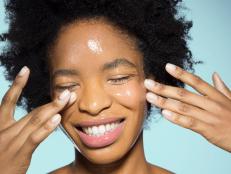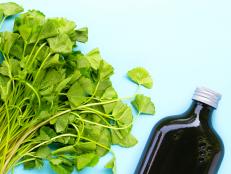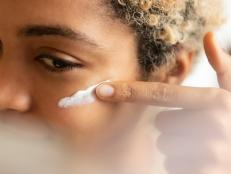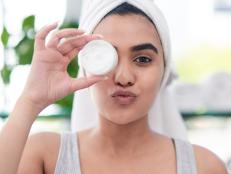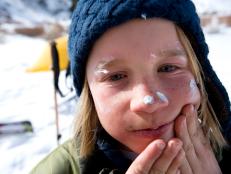Pro Tips for Winter Skincare
Healthy skin is happy skin.
How to Take Care of Your Skin
We’ve all had the feeling: tight, itchy, skin that starts to redden and flake soon after the days get shorter and the temperature drops to near arctic levels. As soon as you start pulling out your winter wardrobe, you should be switching up your skincare routine to brave the icy weather and blasts of dry, indoor air. Here are 10 expert tips on how to care for your skin during the harshest months of the year.
Invest in a Humidifier
As the temperature drops outside, the thermostat inside often gets cranked up. While it may warm your body and soul, electric heat is terribly drying for the skin. If you wake up after a cold night with tight skin, parched lips and limp hair, that dry heat is most likely the culprit.
“Use a humidifier in your bedroom, especially once you turn on your furnace,” said Toronto-native Tsippora Shainhouse, MD, FAAD of SkinSafe Dermatology and Skin Care in Beverly Hills. “If you have old-fashioned radiators (hello, my old NYC apt...), place a heat-safe dish with water on the radiator while it is on. This will allow the water to evaporate into the air.”
Raise a Glass (of Water)
One of the best ways to combat dry skin in the winter is by drinking lots and lots of water.
“It's easy to skimp on your water intake when it's cold outside, so we tend to slack off on water consumption and opt for hot coffee and tea instead,” said Angela L Bowman of Sacred Plant Organics, a former resident of brutally cold and windy Montana. “Drinking plenty of water can help keep our skin hydrated from the inside and can also help with static electricity.”
What’s the magic number? Eight glasses of water–or 64 oz.– each day, said Dr. Elizabeth Farhat with Allina Health in Minneapolis, Minnesota. This is especially important if you’re working out or trudging around in the snow. The general rule of thumb is to drink enough water that your urine is very light or colorless.
Adapt Your Diet
Just as water keeps you hydrated from the inside out, so does what you eat.
“Get your omega-3s,” said Dr. Heather Tynan, Naturopathic Doctor with Evergreen Naturopathic. “Good quality fats come from a variety of dietary sources including olive oil, avocado, nuts, seeds and well-sourced fish, but it doesn’t hurt to supplement with a good quality fish oil high in omega-3 fatty acids.”
Studies have shown that omega-3s supply hydration and prevent inflammation in the skin. And most people aren’t getting enough. Tynan suggested aiming for three to four grams per day for therapeutic effect after speaking to your doctor—especially if you’re on blood thinners.
And during the holiday season you might want to help your liver help your skin by cutting back on alcohol, sugar and other indulgences, as well as incorporating supplements.
“Burdock root and milk thistle are some of the best herbs for helping the liver process and clear toxins and performing regular castor oil packs of the liver is also helpful,” Tynan said. “If you can’t reduce its load, at least help it handle it!”
Shower Smarter
You might think after however many years on the planet, you know how to shower. But many shower habits negatively impact skin in the winter. When you expose the skin to hot water in the shower or bath, water deep in the skin can evaporate during a process called TransEpidermal Water Loss (TEWL). As tempting as it might be to warm up in a hot shower, keep them to 10 minutes or less and keep the temperature dialed down, Dr. Brooke Jackson of Skin Wellness Dermatology Associates in Durham, North Carolina advised. “There should not be steam on mirror–that means the shower is too hot.”
And depending on the pH of your water–check your local water utility website for quality reports–you might want to consider a shower filter, home water softener system or skincare products that contain antioxidants like Vitamin C.
“The tap water you take showers or baths in may be high in certain minerals, such as magnesium, lead and zinc,” said Dr. Flora Stay, founder of Cleure, a sensitive skincare line. “This hard water can leave a harsh film on your skin, which will contribute to dryness.”
Apply Moisturizer When Wet
So, you switched to take shorter, cooler showers. Now what? Don’t get out and start harshly rubbing yourself dry with a towel. Gently pat yourself with your towel, leaving a layer of moisture on the skin from head to toe.
“You want to trap it in with a heavier moisturizer,” Dr. Jackson said. “With moisturizer, you want to go from a bottle you pump to something you scoop with your hands.”
For the body, Dr. Jackson is a big fan of Dove products and for her clients with sensitive skin, she’s a huge believer in Vanicream’s line of products for the face and body, all of which ring in at under $20.
Many of the other experts surveyed suggested starting with a layer of hyaluronic serum before applying moisturizer because asSylvia Brownlee, founder/CEO Pure Beauty Skin Bar in Cincinnati said,“Hyaluronic acid holds 1000 times in weight and water, and will help keep your skin from being dehydrated in these colder months.”
Consider Switching to a Soap-less Cleanser
Water can strip off some of the skin’s lipid barrier, leaving it dry, dull, itchy or tight in some areas. To prevent irritating the skin even more, Allie Compton, esthetician, makeup artist and manager of the Credo Beauty store NYC, suggested switching to a hydrating, soap-less cleanser.
“A cream- or oil-based cleanser that rinses clean won’t strip or irritate the skin,” she said. “These cleansers will have little to no foam and will work to cleanse without distributing the skin’s natural balance.”
Here are her top picks:
- Dry/Sensitive Skin Types: Violets Are Blue Facial Cleanser uses calming white tea and nurturing silk amino acids.
- Normal/All Skin Types: Maya Chia The Great Cleanse Cleansing Oil has a base of chia seed oil that contains all of the essential omega fatty acids skin needs to maintain balance.
- Oily/Acne-Prone Skin Types: AO Glacial Melt Cleanser is an oil-based gel cleanser that is 98% surfactant free and deeply cleanses without stripping skin.
(Keep in mind: Price and stock could change after publish date, and we may make money from these links.)
Protect Your Skin Barrier
Dry, itchy skin is actually inflamed skin whether or not you see a rash.
“When the barrier is impaired, our skin is prone to irritation and inflammation from environmental and mechanical factors, (like fragrance in products or friction from wool clothes or a rough pair of jeans),” said Dr. Ashley Magovern, MD, Medical Director for Dermstore.
Seek out moisturizers that contain barrier repair agents like ceramides and anti-inflammatories like niacinamide, licorice root and willow bark. And make sure to apply it immediately after getting out of the bath or shower. Dr. Magovern is a fan of Epionce’s line of barrier repair products.
If your skin has been affected by the harsh weather (think: extreme dryness, flaky skin, redness and rashes including eczema), NYC Dermatologist and RealSelf.com contributor, Dr. Michele Green suggested bringing whole milk to room temperature in a bowl, soaking a washcloth in it, and holding it to your face in 15-minute intervals; then without washing off the milk, apply prescription cortisone cream to the affected area two to three times a day. “This ‘seals in’ the moisture to your skin and hydrates it at the same time without irritating or drying,” Green said. “The fat in the milk is what helps heal the skin and is very soothing.”
If you have eczema or your skin is very itchy, Green added, you might want to consider taking an antihistamine: ”An antihistamine is great since it makes the skin ‘less itchy’ and you break the ‘scratch-itch cycle’ and it lets the skin heal.”
Think About a Peel
“People are surprised that if they’re dry they should get a peel,” said board-certified nurse practitioner Melissa Haloossim, founder of Skin Thesis in West Hollywood and Kim Kardashian’s go-to skincare expert.
A good peel removes the top layer of dead skin, allowing your moisturizer to do its duty. “If you have that top layer, nothing it going to penetrate,” she added. Haloossim likes medical grade VI Peels, which are good for evening out pigmentation for all skin types, even sensitive rosacea. But these pricey peels can only be administered by an MD or nurse practitioner in many states and can run from $350 to $475 depending on the booster.
If you don’t have Kardashian cash, you can always try at-home peels or visit your esthetician to “actively start requesting services that use natural acid and enzyme peels, microdermabrasion or other skin polishing procedures,” said Chicago-based celeb esthetician Elina Fedotova, and founder of Elina Organics.
For winter, she recommends trying out her organic fruit peel.
Cover Up
One of the best ways to protect your skin from the harsh winter elements is by keeping it out of the frigid wind. Cover up as much of your skin as possible whenever you head outdoors. Wear gloves and scarves to defend your sensitive hands and face from the weather.
“Don’t wait for your skin to get chapped and damaged,” said skincare expert Adina Mahalli with Maple Holistics. “Rather, protect it right away so that you don’t have to deal with peeling, bleeding, etc. later on.”
Slather on the Sunscreen
Just because the sun isn’t shining doesn’t mean you can skip the sunscreen. No matter the time of year, the vast majority of sun exposure comes from everyday activities like driving to work, walking the dog, picking up groceries and, even, shoveling your driveway on a gloomy day.
“Your skin still absorbs harmful UVA and UVB rays on cloudy, cold winter days as it does on warm summer days,” said Teresa Stenzel, Bioelements’ esthetician and director of education. “In fact, fresh snow on the ground acts as a reflector, and can almost double a person’s UV exposure.”
Slather on sunscreen such as Bioelements skin-strengthening SPF 50 FaceScreen or nourishing cult-favorite Elta MD.
(Keep in mind: Price and stock could change after publish date, and we may make money from these links.)







